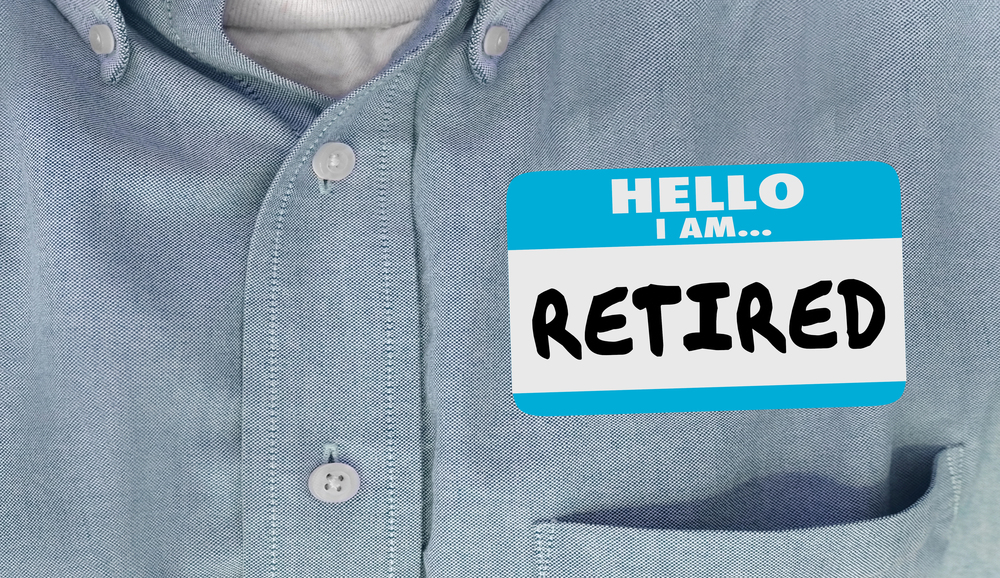Learn a Musical Instrument in Retirement with These Tips

Could starting an instrument now change how someone spends their free time and meet new people?
Many seniors find that picking up an instrument opens doors to fresh friendships, from casual jams to local concerts. Apps like Pianote and Fender Play, plus YouTube lessons, let learners move at their own pace without heavy cost.

Private teachers give tailored feedback, while apps suit those with transport or budget limits. Small goals — from scales to a first song — and short practice blocks (two 10–15 minute sessions or one 30‑minute slot) keep momentum steady.
Recording practice shows real progress and invites honest feedback. Joining online communities such as Musical U or local groups helps members stay engaged and supported through the awkward early weeks.
The article lays out friendly, step‑by‑step guidance so people can pick what fits their life, try free lessons, and enjoy the many benefits of music at any age. Learn more practical options at this resource.
Key Takeaways
- Starting now is welcoming and low‑pressure; many options fit varied schedules.
- Use apps, videos, or a private teacher — try free lessons before subscribing.
- Set bite‑size goals and practice in short, consistent blocks.
- Record sessions to track progress and invite feedback.
- Join online and local communities to build confidence and friendships.
Why learning to play an instrument in retirement is a smart move
Picking up a new instrument can sharpen thinking and brighten daily routines at any age. It links short practice sessions with lasting gains in focus and memory.
Boosting brainpower and memory
Researchers show that practicing engages brain regions tied to attention and recall. Studies link new music study with lower risk of cognitive decline and better day‑to‑day memory.
Physical benefits that support healthy aging
The Making Music and Wellness Project found a 90% rise in human growth hormone among older adults taking keyboard lessons. That change helps muscle and bone health, and practicing builds fine‑motor skills and posture.
Mood, motivation, and social life
Making music eases anxiety and lifts mood. It gives clear rewards as skills improve, and it opens doors to family jams, local community events, and new friendships.
| Benefit | Evidence | Everyday impact |
|---|---|---|
| Cognitive | Studies on memory and attention | Sharper focus, daily recall |
| Physical | 90% HGH increase in keyboard learners | Stronger bones, better coordination |
| Emotional & Social | Research on mood and wellbeing | Less stress, more community events |
Finding your instrument and the best way to learn
Choosing the right instrument starts with the sound that sparks curiosity and the style that keeps practice joyful.
Pick an instrument and a style that excite you
Match the music you love to an instrument that fits daily life. If bluegrass calls, try guitar; if sing‑along songs appeal, the ukulele is friendly. Any choice works when the style inspires regular play.
Why the piano helps hand-eye coordination
The piano lets learners begin with one hand and add the other later. The 88 keys are twelve notes repeated, so patterns repeat and make theory simple.
Harmonica basics and the tongue block embouchure
David Barrett recommends the tongue block: cover four holes, block three with the tongue, and use the open hole for single, clear notes. Avoid puckering; use tongue on/off moves to add chordal texture.
Choose lessons that fit life and time
Private teachers give tailored feedback. Apps like Pianote or Fender Play and free YouTube lessons add at‑home flexibility. Try free lessons first, then pick a course or teacher who focuses on the songs and skills that matter most.
- Start with style, not status.
- Pick one path you can enjoy daily.
Actionable tips for learning a musical instrument in retirement
Starting small and steady makes progress feel real and keeps practice enjoyable. Set clear, bite-size goals — master a scale, then a short song section. Terri L. Jones recommends splitting larger pieces into measures or separating melody and chords.
Set clear, bite-size goals from first scales to favorite songs
Warm up, work a focused technique, play a song slice, and finish with a cool-down. This routine keeps sessions productive and light.
Practice in short, steady sessions and build consistency
Aim for 30 minutes total or two 10–15 minute blocks. Short daily work beats occasional long sessions and lowers fatigue.
Record yourself to assess progress and refine skills
Recording gives an honest view of timing and tone. Review clips weekly to spot steady gains others might miss.
Invite feedback and add personal guidance
Share short clips with trusted musicians or community members. Start with online videos or an app, then add one-on-one lessons to fix posture, fingering, and rhythm.
Be patient — hands and brain learn together. Celebrate small wins, include a favorite song each session, and play for family to build confidence. Learn how to rekindle hobbies with this helpful guide: rekindle hobbies.
Conclusion
Music can add steady purpose and fresh social chances to later life. It boosts focus and memory, lifts mood, and creates moments to share with family and fellow musicians.
One clear next step: pick one small goal, choose an instrument and a course that feels inviting, and set a simple weekly plan. Begin with free app lessons or YouTube, then add private guidance when ready.
Join local members or online groups and say yes to low‑stakes events. Short, regular sessions compound into real progress, and playing with others turns practice into connection.
Read why this is the prime time to start and where to find support: prime time to learn an instrument.
FAQs About Learning a Musical Instrument in Retirement
Is it really never too late to learn to play a musical instrument?
Absolutely! It’s never too late to learn to play music. Many older adults find that picking up an instrument later in life can be incredibly rewarding and fulfilling. Engaging with music can provide mental stimulation and joy, making it a great way to spend retirement years.
What are the best instruments to learn for beginners in retirement?
Some of the best instruments to learn for beginners include the ukulele, harmonica, and keyboard. These instruments are often considered easy to learn, making them suitable for seniors who want to learn something new without feeling overwhelmed.
What tips for learning to play an instrument can help older adults?
Consider taking lessons from a qualified instructor and practice regularly in short sessions to build your skills gradually. It's also helpful to choose an instrument that resonates with you personally, as this can enhance your motivation and enjoyment in learning to play music.
Are there any simple instruments that are particularly recommended?
Yes, simple instruments like the ukulele or keyboard are great choices for those looking to start learning music. They have straightforward chord structures and can quickly lead to playing beautiful music, which can be gratifying for beginners.
How can learning a musical instrument improve my mood?
Engaging in music training has been shown to improve mood and reduce stress. Learning to play an instrument can provide a sense of accomplishment and joy, which can be especially beneficial for older adults looking to enhance their quality of life.
What genres of music are easier to learn for beginners?
Pop, folk, and simple classical pieces are often easier for beginners to learn. These genres typically feature straightforward melodies and chord progressions, making them accessible for those who are just starting out.
What should I consider when selecting an instrument to learn?
Think about what style of music you enjoy most and the physical considerations of playing an instrument. For example, if you want to learn to play the guitar, consider your hand strength and dexterity. Choosing an instrument that aligns with your interests will enhance your learning experience.
Can I learn to read music as an older adult?
Yes, learning to read music is possible at any age. Many older adults take music lessons specifically to learn music notation. This skill can deepen your understanding of music and enhance your ability to play a musical instrument effectively.
Is it common for seniors to take lessons for music?
Yes, many seniors are now taking lessons to learn an instrument in retirement. Music is a great way to stay mentally active and socially engaged, making it a popular choice among older adults looking to enrich their lives.
Free-Access Scholarly Studies on Musical Instrument Learning in Later Life
1. Piano Training and Cognitive Function (2013)
Study: "Effects of music learning and piano practice on cognitive function, mood and quality of life in older adults"
Source: Frontiers in Psychology - Free Access
Citations: 348
Key Findings:
- Participants: Adults aged 60-84 years
- Duration: 4 months of piano lessons with daily practice
- Cognitive Benefits: Significant improvement in executive function, particularly on the Stroop test (measuring selective attention, inhibitory control, and cognitive flexibility)
- Mood Benefits: Reduced depression symptoms and improved psychological well-being
- Quality of Life: Enhanced psychological and physical health domains
- Conclusion: Piano learning can promote cognitive reserve and improve subjective well-being in older adults
2. Group Piano Training and Wellbeing (2020)
Study: "Cognitive, motor and social factors of music instrument training programs for older adults' improved wellbeing"
Source: Frontiers in Psychology - Free Access
Citations: 62
Key Findings:
- Duration: 10-week piano training program
- Cognitive Benefits: Moderate improvement in visuo-motor skills (Trail Making Test Part A)
- Social Benefits: Strong motivational benefits from group learning environment, especially when repertoire was familiar and groups were cohesive
- Self-efficacy: Participants reported increased confidence and surprise at their ability to learn new skills
- Note: Limited evidence for improvement in executive function or general hand function in this shorter program
3. Melodica Training and Working Memory (2023)
Study: "Effects of a 10-week musical instrument training on cognitive function in healthy older adults"
Source: Frontiers in Aging Neuroscience - Free Access
Citations: 14
Key Findings:
- Instrument: Melodica (keyboard harmonica)
- Duration: 10 weeks of group training
- Participants: Mean age 73.3 years
- Specific Benefits: Significant improvement in verbal working memory (phonological fluency) and faster reaction times on working memory tasks
- Innovation: First study to demonstrate improved phonological verbal fluency following musical intervention
- Conclusion: Working memory may be the earliest cognitive domain to benefit from brief musical training
4. Large-Scale Piano vs. Music Listening Study Protocol (2020)
Study: "TBM: brain plasticity and cognitive benefits induced by musical training in elderly people"
Source: BMC Geriatrics - Free Access
Citations: 71
Study Design:
- Scale: 155 retired healthy adults (ages 64-78)
- Duration: 12 months of training
- Comparison: Piano training vs. musical listening/culture education
- Measurements: Comprehensive cognitive testing, brain imaging (MRI), and blood sampling
- Expected Outcomes: Improvements in executive functions, working memory, processing speed, abstract thinking, and fine motor skills
- Brain Changes: Anticipated structural and functional brain plasticity in temporal, prefrontal, and parietal areas



